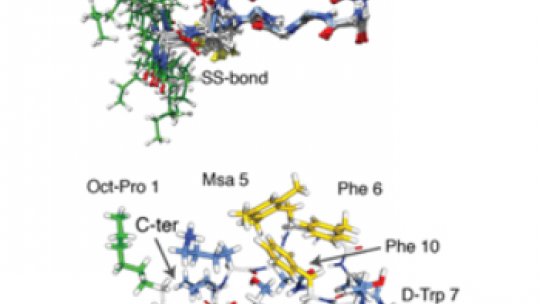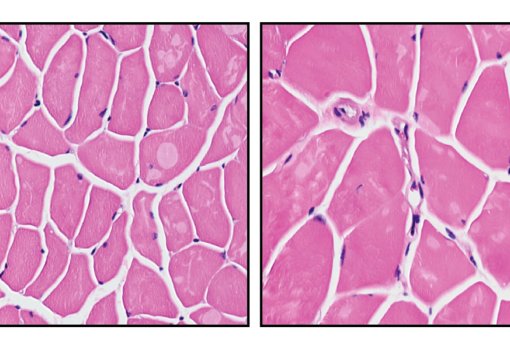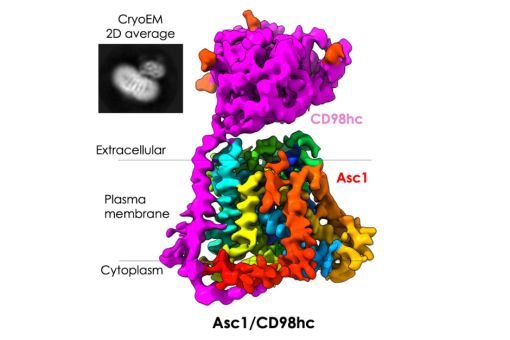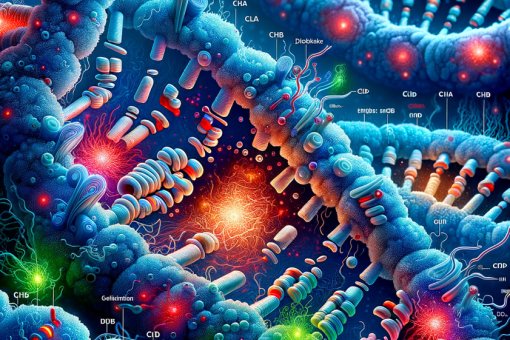Images
Participants









Contact

The new treatment is based on a more stable analogue of cortistatin, a molecule with a powerful anti-inflammatory and modulating effect on the immune response.
The study is the result of a collaboration between the Institute for Research in Biomedicine (IRB Barcelona), the Institute of Parasitology and Biomedicine “López-Neyra” (IPBLN), which is part of the Spanish National Research Council (CSIC), and the biotech company BCN Peptides.
The results have been published in the journal Nature Communications.
Inflammatory bowel disease describes a family of disorders that includes Crohn's disease and ulcerative colitis, conditions that affect more than 300,000 people in Spain. Dr. Maria Macias and Dr. Antoni Riera, group leaders at the Institute for Research in Biomedicine (IRB Barcelona) Dr. Mario Delgado, head of the Neuroimmunology of Inflammatory and Autoimmune Diseases group at the Institute of Parasitology and Biomedicine"Lopez-Neyra"(IPBLN), part of CSIC, and the biotech company BCN Peptides, have co-led research to identify and study an analogue of the natural peptide hormone cortistatin as a potential drug for the treatment of inflammatory bowel disease.
"Inflammatory bowel disease is increasingly being detected in young people and, depending on its severity, can be incapacitating," explains Dr. Macias, ICREA researcher and head of the Structural Characterization of Macromolecular Assemblies lab at IRB Barcelona. The origin of inflammatory bowel disease is unknown. Although there is currently no cure, some treatments are available to alleviate symptoms. The cortistatin analogue selected as a potential drug is in the clinical development phase and is expected to be commercialised shortly.
Natural peptide hormones with powerful biological effects
Somatostatin and cortistatin are natural peptide hormones with very short half-lives that exert many biological effects. The research groups headed by Dr. Macias and Dr. Riera have studied how to stabilise these peptides and make them more selective. Specifically, cortistatin is considered a neuropeptide. The unique chemical structure and powerful biological activity of this compound have stimulated interest in its total synthesis and subsequent biological evaluation.
A new interdisciplinary approach
To design a more stable cortistatin analogue, IRB Barcelona researchers studied the structure of this hormone by means of nuclear magnetic resonance and used the information obtained as a guide to prepare other peptides with similar structures. "The idea was to optimise the stability of cortistatin analogues for pharmacological use while maintaining a structure and activity like that of the native peptide," explains Dr. Riera, head of the Research Unit on Asymmetric Synthesis at IRB Barcelona and professor in the Department of Inorganic and Organic Chemistry at the University of Barcelona.
To prepare a series of cortistatin analogues, the experience of the company BCN Peptides and that of the laboratories of Dr. Riera and Dr. Macias in the design and synthesis of peptides and in structural studies using nuclear magnetic resonance imaging, respectively, was pooled.
In collaboration with Dr. Delgado, the efficacy of the cortistatin analogues was evaluated in preclinical models of inflammatory bowel disease. "We have identified and developed a peptide that is ten times more stable in plasma than cortistatin and that exerts anti-inflammatory activity superior to that shown by some treatments already approved for Crohn's disease," explain Dr. Delgado from the IPBLN-CSIC and Drs. Fernández and Ponsati from BCN peptides.
This study was funded by the Ministry of Economy, Industry and Competitiveness (MINECO)(CTQ2014-56361-P, CTQ2017-87840-P (A.R.) and RTI2018-100700-B-100 (M.D.) and the Government of Catalonia (AGAUR (SGR-50)). A. Rol received a doctoral fellowship from the Government of Catalonia (FI) and A.E. and E.P. were beneficiaries of doctoral fellowships awarded by the Severo Ochoa Programme (FPI) to IRB Barcelona. T.T. was a postdoctoral fellow co-financed by the COFUND Marie Sklodowska-Curie (Interdisciplinary Postdoctoral Programme of IRB Barcelona).
Reference article:
Alvaro Rol, Toni Todorovski, Pau Martin-Malpartida, Anna Escol, Elena Gonzalez-Rey, Eric Aragon, Xavier Verdaguer, Mariona Valles-Miret, Josep Farrera-Sinfreu, Eduard Puig, Jimena Fernández-Carneado, Berta Ponsati, Mario Delgado, Antoni Riera & Maria J. Macias.
Structure-based design of a Cortistatin analogue with immunomodulatory activity in models of inflammatory bowel disease
Nature Communications (2021) DOI: 10.1038/s41467-021-22076-5
About IRB Barcelona
The Institute for Research in Biomedicine (IRB Barcelona) pursues a society free of disease. To this end, it conducts multidisciplinary research of excellence to cure cancer and other diseases linked to ageing. It establishes technology transfer agreements with the pharmaceutical industry and major hospitals to bring research results closer to society, and organises a range of science outreach activities to engage the public in an open dialogue. IRB Barcelona is an international centre that hosts 400 researchers and more than 30 nationalities. Recognised as a Severo Ochoa Centre of Excellence since 2011, IRB Barcelona is a CERCA centre and member of the Barcelona Institute of Science and Technology (BIST).




